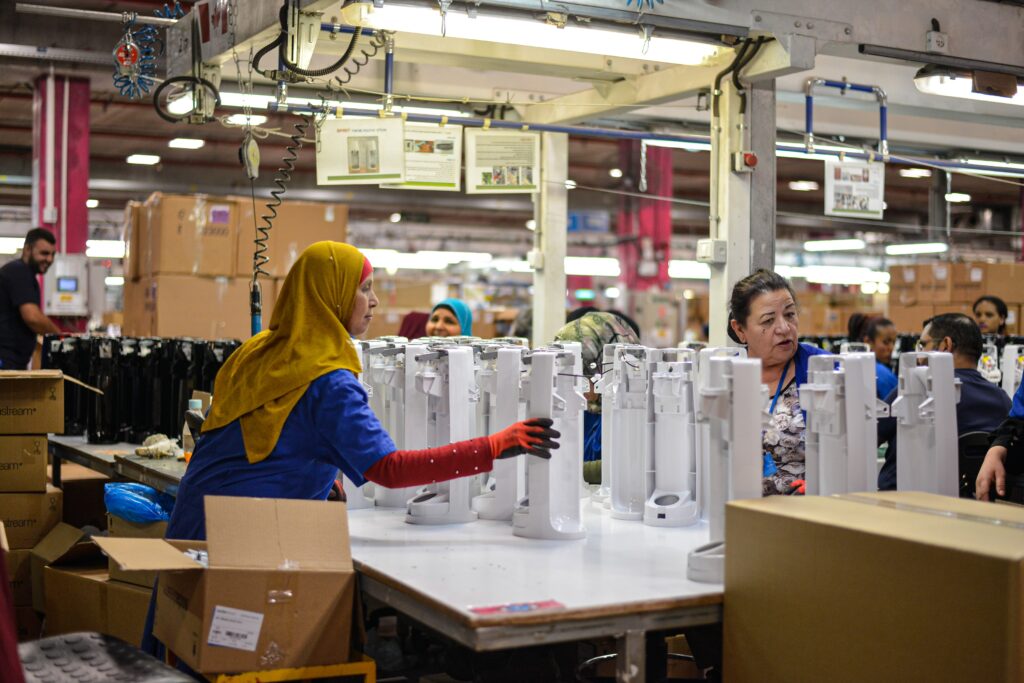Reducing the carbon footprint of the manufacturing industry through data sharing
 Image credit: Remy Gieling on Unsplash
Image credit: Remy Gieling on Unsplash
Determining a product’s carbon footprint helps benchmark decarbonisation efforts, but is also challenging due to a lack of data transparency
Description
One-fifth of the world’s carbon emissions come from the manufacturing and production sectors. A first step towards reducing the carbon footprint of the manufacturing industry is understanding the Product Carbon Footprint (PCF), which measures the total greenhouse gas emissions generated by a product. Companies engaged in Unlocking Value in Manufacturing through Data Sharing, an initiative from the World Economic Forum in collaboration with Boston Consulting Group, developed a blueprint to trustfully and securely exchange PCF data along manufacturing and supply networks.
This data sharing will enable manufacturers to establish a baseline of carbon emissions, provide the foundation for initiatives to decarbonize production operations, and ultimately help them identify the major contributors to the CO2 footprint and reduce it.
Relevance
The World Economic Forum and its partners aim at reducing the carbon footprint of the manufacturing industry by exchanging data in the supply chain. How might the wider industry and data legislation become open to possibilities surrounding data exchanges and overcome the barriers of IP protection and sharing technical knowledge?
Learn more
Vision
EIT Manufacturing vision for the future of Manufacturing in Europe in 2030, called ‘Fixing Our Future
Enablers
Enablers for future change and actions to make the vision, as described in Fixing Our Future, a reali
Signals
A knowledge library of over 100 signals of change, as examples of emerging manifestations towards the
About the project
Learn more about the background, the process and the people and the contributors behind this project.

